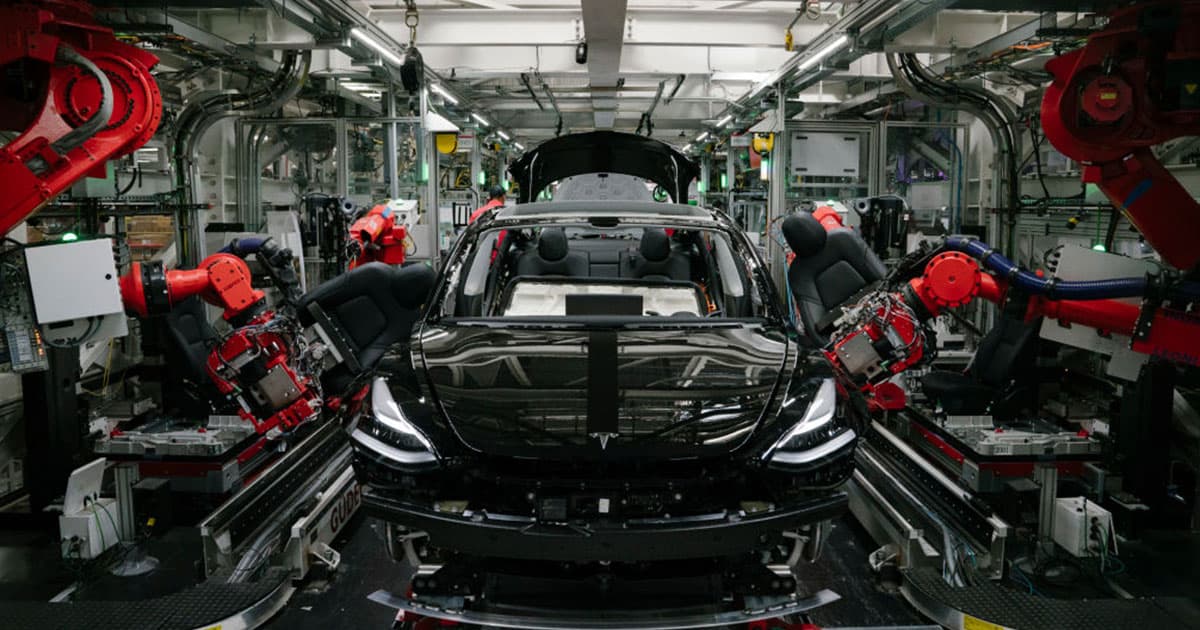An explosive investigation has found that Tesla has given up on the Model 2, an affordable, $25,000 car that investors are hoping will prop up the embattled automaker as it battles a range of woes including fierce and much cheaper competition from China.
Three sources familiar with the matter told Reuters that the Elon Musk-led company is looking to pivot to self-driving robotaxis instead, an eyebrow-raising shift in priorities.
While the carmaker has yet to comment on the matter, Musk accused Reuters of "lying" without elaborating further or providing any form of evidence.
If confirmed, the decision to give up on the smaller, mass-market car, which was to be built on a "revolutionary" next-generation platform, could raise the stakes around the EV maker's pursuit of self-driving tech even higher.
The company's in deep financial trouble, with investors expecting a "nightmare" year ahead. Deliveries fell for the first time in four years this quarter, and analysts aren't expecting the situation to get much better any time soon.
Musk is keenly aware of the threat of Chinese automakers, which could bowl over their competitors in the US market with much lower EV prices.
"Frankly, if there are not trade barriers established, they will pretty much demolish most other car companies in the world," Musk warned back in January. "They are extremely good."
Fortunately for him, due to high tariffs, not a single Chinese car manufacturer is currently authorized to sell their vehicles in the US.
Focusing on robotaxis instead, a concept Musk has been floating for many years now, could take even longer and expose Tesla to even more scrutiny from regulators, Reuters suggests.
And on a purely practical level, the company's current self-driving tech just isn't there yet.
Musk told investors during the company's 2019 Autonomy Investor Day that he expected there to be more than one million autonomous robotaxis on the road by 2020. Needless to say, his comments were met with derision and disbelief by analysts — and remain elusive four long years later.
Internal messages obtained by Reuters detail how one unnamed program manager discussed the termination of the project, thanking employees for their hard work.
"We would not want all our hard work to go to waste, so it’s important that we tie things off and document things properly," the message reads.
While Google-backed Waymo and particularly General Motors' Cruise have experienced plenty of teething pains in rolling out robotaxis — built on existing consumer vehicles — on public streets in the US, Tesla also has considerable resources behind the initiative.
As Reuters points out, the company's market cap is over half a trillion dollars, more than the next three most valuable carmakers combined.
But how much credence should we really place in the report? Is Tesla really calling it quits on the Model 2 — or should we take Musk's infamously unreliable word instead?
The idea of hitting the brakes on a smaller, mass-market car in favor of robotaxis has already come up in Musk biographer Walter Isaacson's book on the billionaire, as The Verge points out.
Whether investors will play along with Musk's gamble — if it does turn out to be true — remains to be seen.
Tesla shares dipped significantly around the time Reuters published its story, but stabilized shortly after, suggesting many have yet to make up their mind.
More on Tesla: Elon Musk Is Still Trying to Get Other Carmakers to License "Full Self-Driving," But Not a Single One Took Him Up On It
Share This Article
